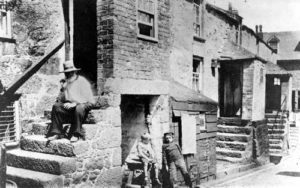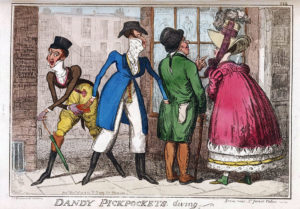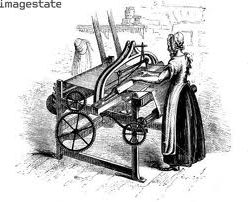If you have carried the initial research necessary to take your ancestry back as far as possible, you will no doubt have used the main resources – that is, civil registration, census records and parish records. What these records will give you are the vital dates, places and occupations, and the necessary information to take the family back to the next generation. And for many of your ancestors, especially if they are of the working classes, this may be the only information you will be able to find.

But it is always worth searching for other records, even if they are of the poorer classes because occasionally you’ll find sources that can give you some fascinating information about your ancestor’s life that can bring them to life in a way that other documents don’t.
For example, if your ancestor fell on hard times and needed parish relief, you may be lucky enough to find a settlement record. These were examinations made to make sure that a person had a legal right to poor relief in a village they wanted to live in, if they were born elsewhere.
These records can give detailed information about the person and his family. He was often asked to make a lengthy statement, describing his family and circumstances, which can give you a great insight into his life. I once found a very detailed statement for a client’s ancestor, which not only told us that he had had a previous marriage (a piece of information that had not been apparent from the other records), but also that he was illegitimate, and exactly how much bread he and his family had to live on each week. Although the statement would have been written down by someone else from what the person told them, you can still hear the ‘voice’ of this person from the past, who was desperately trying to feed his wife and children.
The person who had so far been no more than a name and a date on a page, came to life. It was no surprise to find that he died in the Workhouse in his 50s, and some of his children took the opportunity to leave the poverty of the area for a new life in Australia.
If your ancestors had money or property, then you should always search for probate records. Even those of the working classes occasionally left a will, though this is not so common. Wills can give you excellent insight into an ancestor’s life, as well as his relationships with his family and community. I once found a will which stated that if the testator’s widow was to marry again, she would lose any claims to his property and his son was to slam the door in her face. That certainly gave me some insight into his character!
A will that comes with an inventory is an added bonus. The inventory is a list of the deceased’s possessions that was made after his death to give an idea of the value of his assets. Seeing a list of your ancestor’s furniture, utensils and tools of trade can give you a picture of how they lived their life. Farm inventories are particularly interesting, giving details of livestock, dairies, farm tools, arable land and other farm activities he was involved in. They can be a little difficult to read, as they are often full of archaic words for items that have fallen out of use, but a little research can sometimes help with this – and it is well worth the effort.

Another rich source of information can be Newspaper records from the 18th century onwards. Internet research means that you can search newspaper indexes on websites such as FindMyPast and the BritishNewspaperArchive to find a specific ancestor (this was not possible before the internet as they were not indexed). If your ancestor had somehow been caught up in a crime, either as the perpetrator or the victim, you may find some interesting details about the case. Or if your ancestor had some property to sell, you might find that they placed an advert in the local paper. Using newspaper records I found items that described in great detail a client’s ancestor who had carried out a string of misdemeanours including bar-room brawls and petty theft in Birmingham and London. Another useful newspaper item are obituaries. These can describe a person’s life in great detail – but they are usually only written for those who have been of some prominence in the local community
Even if you can’t find documents that relate personally to your ancestor, it is still possible to find out how they might have lived, and what local and national events may have been important to them. You can find histories of specific villages and towns on the internet, but an even richer source can be in local libraries, archives and bookshops where you will often find books about the local area. Churches also often produce leaflets about the history of the parish. All these can give details about local events that were of importance to the residents, and if you are very lucky, you might even find your ancestor’s name mentioned.

If you know what your ancestor’s occupation was, you should also be able to find out what his (or her) working life was like. The Society of Genealogists regularly publishes books in a series entitled ‘My Ancestor was a…’ They are full of information and tips for doing further research on occupational records. It is worth finding out whether they have published one about your ancestor’s occupation. You might also be able to find books about the history of some occupations, such as shoemaking
If you know that your ancestor worked for a specific company, you could also try finding out whether the company still exists and if they have researchable archives – or perhaps their records have ended up at the local record office.
Whether or not you can find documents that mention your ancestor by name, there are many ways to find out about your ancestors’ lives, so dig deep and you can come up with a creditable account of how they lived from day to day.

